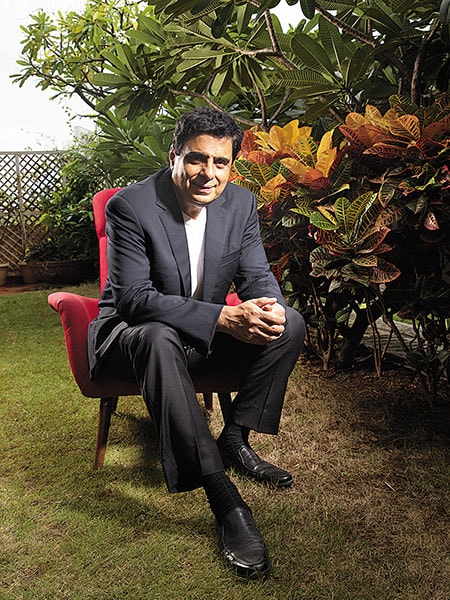
Media has lacked innovation for a long time: Ronnie Screwvala
Ronnie Screwvala talks about learnings from setbacks and failures, and entering the ed-tech market
 Ronnie Screwvala
Ronnie ScrewvalaImage: Mexy Xavier
Key learnings from the entrepreneurial journey:
All my learnings have come from my multiple failures. For me the lesson is that even if you get two things really right and eight things wrong, you can still be a winner. Because if you don’t get eight things wrong, the two things you are getting right are probably up very low. When eight things go wrong, that’s a cost, but then the things that start working will be a 20x, 30x, 40x success. For that, you need to have a risk-taking appetite and that is the core of entrepreneurship. One of my board members had once jokingly told me, “Ronnie, cats have nine lives, you have 20.” If I have built something of value, there is a lot underneath that would have had many setbacks, failures and write-offs.
Returning to media with RSVP Movies:
I haven’t actually come back to media so to say. In my first innings, media to me was making a business out of it; RSVP and U Sports are passion projects. And the beauty of passion is you don’t have to apply business metrics to it—you could take a gestation period and not look at return on investment. That’s why I don’t do co-productions. If this was a business, I would need to do it. I can do one movie a year, I can do five, or nothing. Some people play golf on Saturdays and Sundays. I make movies. Audiences today have evolved and the quality of storytelling, because of digital platforms and theatrical windows, now allows you to be a lot more contextual. People are looking at not just entertainment, but real-life stories.
The media space then and now:
We have just not broken out of advertising being the mainstay of making media viable. The subscription model has moved a little bit, but is still distant. For OTT platforms it’s still early days. This is the first country in the world where Netflix has had to break down the $10 price model to bring it down to ₹199—approximately $3, and that too mobile-first. Disney+ Hotstar’s ARPU (average revenue per unit) is their lowest in the world. That’s the big challenge. Media has lacked innovation for a long time and has been too dependent on advertising. Broadcasting will struggle for the long term, print I am not sure where it will go from here unless very strongly married with digital, and digital without subscription is a problem.
Surviving in the crowded edtech sector:
We have four or five players, but the universe is 100 million people in the workforce. So even if I have 25,000 students a quarter, this isn’t even the tip of the iceberg. If there were 2,000 universities, would you say there would be no need for the next 2,000?
Today, the market is massive and competition is not really the criterion. The quality, the learning experience, and the depth of your learning to maintain the credibility of online is. My biggest worry about competition is people who get easily funded and then blow up money on marketing, lowering the price of education to a level that is unaffordable to sustain. And then there is no model for anybody. My second worry is to give online education a bad name. I have no problem if there are seven credible players but each is building the market. We need one bad person in there who ruins m if there are seven credible players but each is building the market. We need one bad person in there who ruins the reputation.
(This story appears in the 30 November, -0001 issue of Forbes India. To visit our Archives, click here.)





